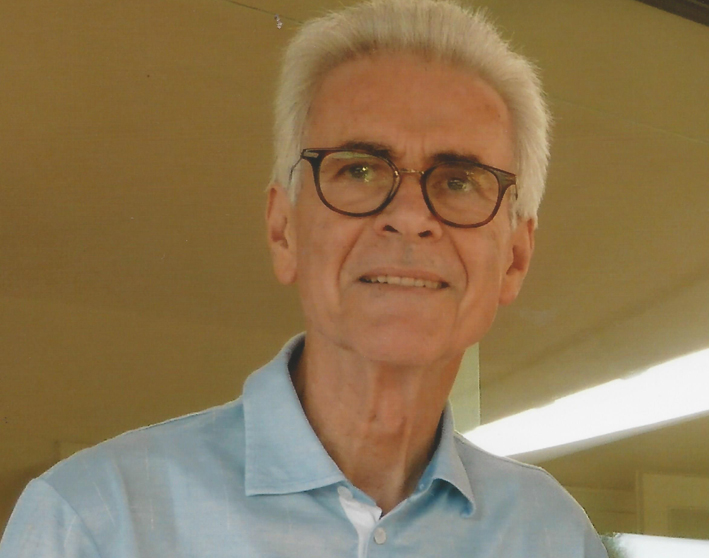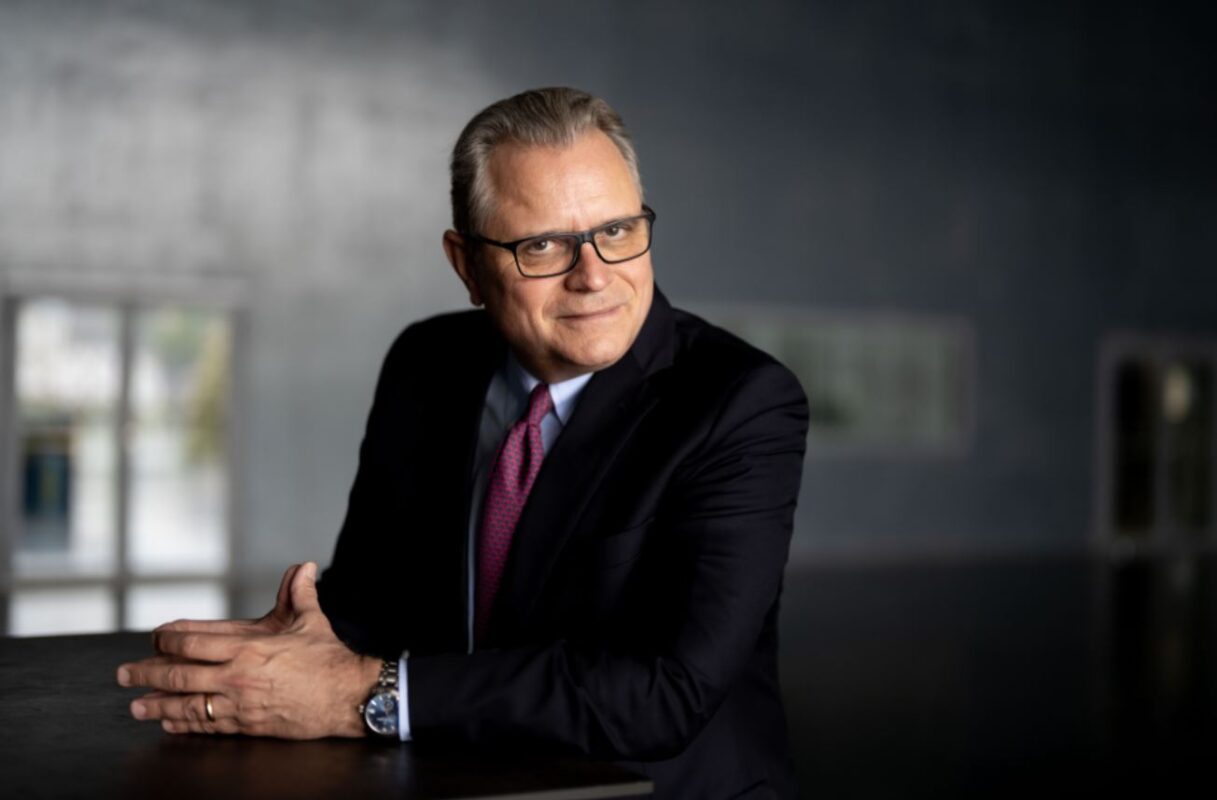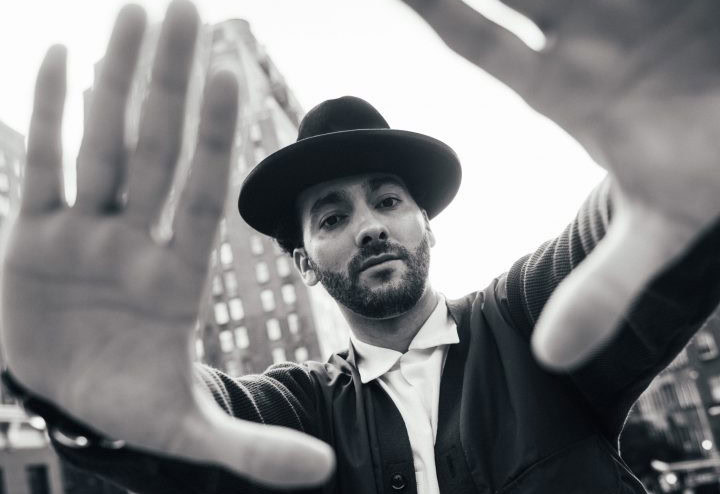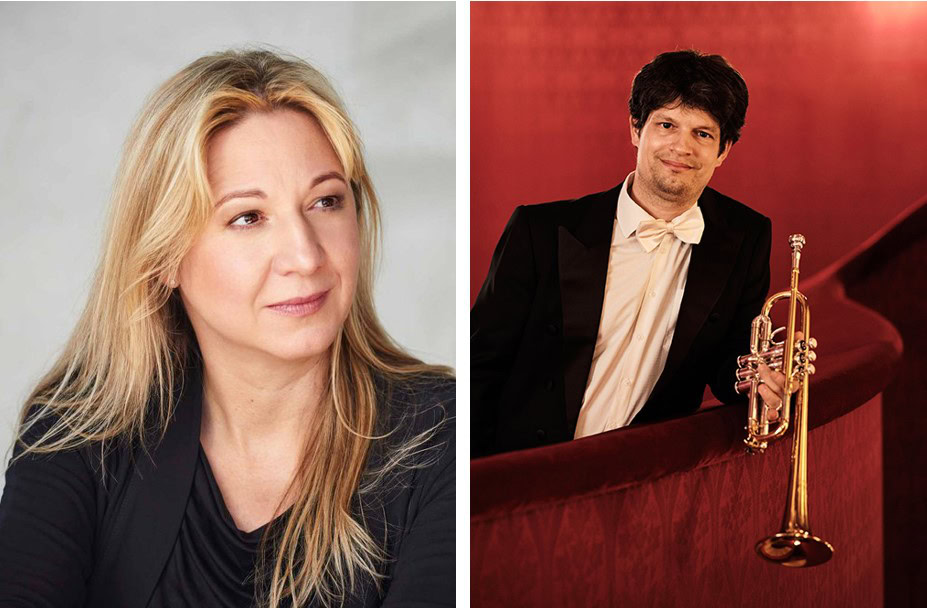Walter Furrer and Antony Morf
The clarinettist Antony Morf (1944-2016) and the composer Walter Furrer (1902-1978) probably met at the annual meeting of the Swiss Musicians' Association in 1974.

On the cover page of the manuscript Nahtegal, guot vogellin - It is a small composition for chamber choir and four instruments (viola, guitar, recorder, tambourine) based on a Middle High German text by the Bernese minstrel Heinrich von Stretelingen, which was broadcast by Studio Radio Bern on May 24, 1975 - Walter Furrer wrote the handwritten dedication "Für Herrn Morf".
The lutenist Irina Döring drew my attention to this. She was a participant in the seminar organized by the Institute of Musicology at the University of Bern in the winter semester of 2016 Saving the Swiss composer Walter Furrer from oblivion (Head: Prof. Dr. Cristina Urchueguía; focus: Music after 1600 / Edition philology) and dealt with the aforementioned work.
Due to the rarity of the name alone, it was not too difficult to find out who was behind it. After contacting the Bernese musicians Adrian and Helene Wepfer, it was clear that it must be Antony Morf, who was first clarinettist of the Bern Symphony Orchestra for several years. As he later also worked in Basel in this capacity, I continued my research at the Basel Symphony Orchestra and, after a few detours, finally reached Mr. Cardinaux, one of Antony Morf's students, and through him to Mrs. Dorothee Morf, the artist's widow.
During a conversation I had with her in Basel on December 1, 2016, I gained an insight into Antony Morf's biography and also learned that he and Walter Furrer had met. However, I must caveat this by saying that this information is rather summary and therefore lacks characteristic details. This is due to the fact that Antony Morf, although a sought-after and widely known orchestral and solo musician, was markedly modest and therefore deliberately kept nothing for "posterity". In addition, apart from the aforementioned dedication, no written notes on Antony Morf have yet been found in Walter Furrer's estate.
Antony Morf was born in Geneva on June 16, 1944, attended grammar school there and had clarinet lessons from an early age: from 1958 to 1963 he was a student of the Dutch clarinettist Léon Hoogstoël at the Geneva Conservatory. There he obtained his teaching diploma and won the First Virtuoso Prize, after which he was a private pupil of Ferenc Hernad (Lugano) for a while. He went on to win several prizes at international music competitions, including third prize in Geneva in 1967 and first prize in Budapest in 1970.
From 1965 to 1970 he was a member of the Quintette à vent romand. He played as first clarinettist in several Swiss symphony orchestras, from 1968 to 1972 in Bern, then in Zurich and Geneva. In 1978 he moved to the Basel Symphony Orchestra, where he worked until his retirement in 2006. In the 1972/73 season, he was celebrated as a soloist at subscription concerts in Bern and Lausanne. In between, many concert tours - as a soloist and orchestral musician - took him to Paris, Monaco, Salzburg (Festival), Prague and Budapest. He worked with the leading conductors of his time - Armin Jordan, Charles Dutoit and others - and also became known through numerous recordings, for example on the Erato label; the recording of Igor Stravinsky's Histoire du soldat was awarded the Grand Prix du disque. Antony Morf died on May 26, 2016 in Basel.
According to Ms. Morf, the meeting with Walter Furrer came about on 18 May 1974 at the annual meeting of the Swiss Association of Musicians, of which Walter Furrer had been a member since 1952. At the time, Antony Morf won the first prize of 5,000 francs. Somehow the two must have taken a spontaneous liking to each other. As Mrs. Morf told me, her husband, like Walter Furrer, had a sound literary education and - and this is a pronounced affinity - an innate sense of whimsical comedy; Honoré Daumier was one of his favourite artists.
So the two musicians must have got on well from the outset, regardless of the age difference. I would like to add from my own knowledge that Walter Furrer was at odds with his own son, who did not accept his new wife, because of his second marriage. He suffered greatly from this estrangement, and it is quite conceivable that he experienced the young clarinettist as a kind of "son by choice". Seen in this light, one could classify the dedication mentioned at the beginning as a spontaneous expression of sympathy.
I would like to thank Ms. Morf for the interview and the valuable information she provided. My thanks also go to the Schweizerischer Tonkünstlerverein in Lausanne, where I was able to take additional notes on Antony Morf on December 22, 2016 with the help of managing director Johannes Knapp








